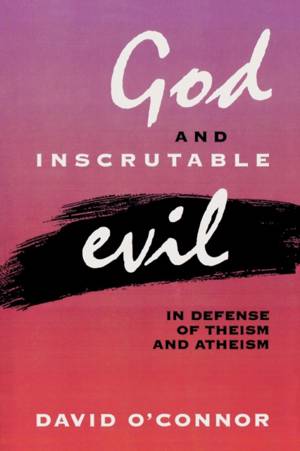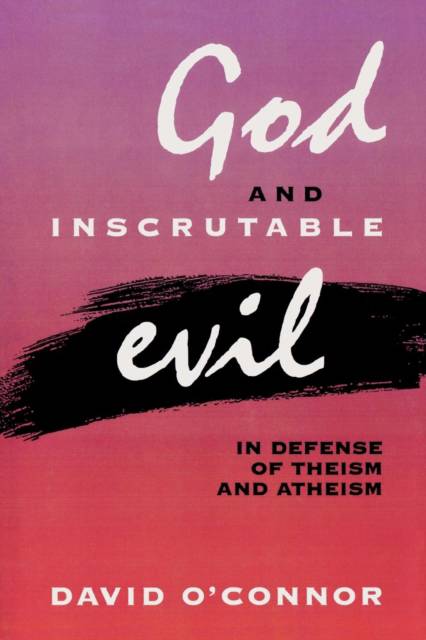
Bedankt voor het vertrouwen het afgelopen jaar! Om jou te bedanken bieden we GRATIS verzending (in België) aan op alles gedurende de hele maand januari.
- Afhalen na 1 uur in een winkel met voorraad
- In januari gratis thuislevering in België
- Ruim aanbod met 7 miljoen producten
Bedankt voor het vertrouwen het afgelopen jaar! Om jou te bedanken bieden we GRATIS verzending (in België) aan op alles gedurende de hele maand januari.
- Afhalen na 1 uur in een winkel met voorraad
- In januari gratis thuislevering in België
- Ruim aanbod met 7 miljoen producten
Zoeken
€ 108,45
+ 216 punten
Omschrijving
In this important new book, David O'Connor discusses both logical and empirical forms of the problem of inscrutable evil, perennially the most difficult philosophical problem confronting theism. Arguing that both a version of theism ('friendly theism') and a version of atheism ('friendly atheism') are justified on the evidence in the debate over God and evil, O'Connor concludes that a warranted outcome is a philosophical d_tente between those two positions. On the way to that conclusion he develops two arguments from evil, a reformed version of the logical argument and an indirect version of the empirical argument, and deploys both against a central formulation of theism that he describes as orthodox theism. God and Inscrutable Evil makes a valuable contribution to contemporary debates in the philosophy of religion.
Specificaties
Betrokkenen
- Auteur(s):
- Uitgeverij:
Inhoud
- Aantal bladzijden:
- 288
- Taal:
- Engels
Eigenschappen
- Productcode (EAN):
- 9780847687640
- Verschijningsdatum:
- 4/12/1997
- Uitvoering:
- Paperback
- Formaat:
- Trade paperback (VS)
- Afmetingen:
- 149 mm x 227 mm
- Gewicht:
- 399 g

Alleen bij Standaard Boekhandel
+ 216 punten op je klantenkaart van Standaard Boekhandel
Beoordelingen
We publiceren alleen reviews die voldoen aan de voorwaarden voor reviews. Bekijk onze voorwaarden voor reviews.









